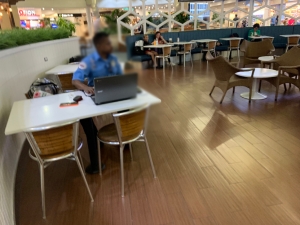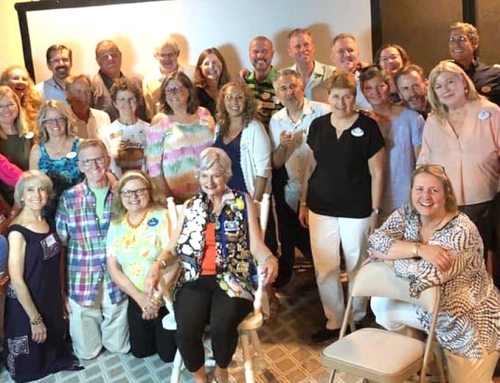There are many ways to keep private conversations private. Maybe you close a door. Lower your voice. Move to a quiet area so you can respect the privacy of the parties involved.
But what if these things are unavoidable? How do you prevent private conversations from being heard and preserve the customer or patient experience?
 In between flights recently, I was getting some food at an airport when I overheard the transmissions coming from a two-way radio belonging to an airport security officer. He was clearly on his break and enjoying lunch, but his radio was still on full blast, which meant everyone within earshot was able to hear his and his team’s private conversations about airport security. The conversations very well could have been benign and ordinary…or they could have been about issues, problems, security threats, etc, all of which would no doubt add anxiety to a place (a food court) where there was none.
In between flights recently, I was getting some food at an airport when I overheard the transmissions coming from a two-way radio belonging to an airport security officer. He was clearly on his break and enjoying lunch, but his radio was still on full blast, which meant everyone within earshot was able to hear his and his team’s private conversations about airport security. The conversations very well could have been benign and ordinary…or they could have been about issues, problems, security threats, etc, all of which would no doubt add anxiety to a place (a food court) where there was none.
This would never happen with Disney security guards. Why? First, they take their breaks in areas that are “backstage” and away from the guests visiting the parks and resorts. And second, they always wear ear pieces. This way they are always attentive to security concerns and issues but they are informed in a way that doesn’t disrupt the guest experience.
This is an example of what our team calls “the Art of Positive Distraction.” It’s a technique to positively distract attention to preserve the customer or patient experience.
The same kind of thing happens in hospital cafeterias.
Patients and family members often inadvertently overhear conversations they may not want to hear. This includes security guards with their radios on, but it also includes doctors, nurses, and other care team professionals who unwittingly discuss their workload while they’re “on break.”
Imagine how disconcerting it could be for a patient or family member to hear a nurse complaining about how short-staffed her team is? Or a doctor complaining about how tired she is after back to back surgeries? We know these are realities, but this is information that could cause undue anxiety and worry.
Using the Art of Positive Distraction, you can keep conversations like these private by providing a separate area for employees to take a break, eat, rejuvenate, and refresh. (And don’t forget to make sure your security personnel are wearing ear pieces!)






